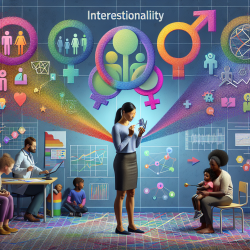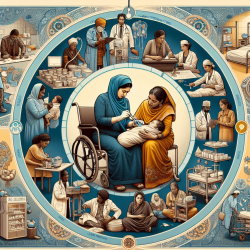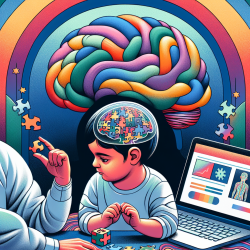Introduction
The mpox outbreak of 2022 brought to light several intersectional challenges faced by gay, bisexual, and other sexual minoritized men (GBSMM) in the United States. The study titled “It’s another gay disease”: an intersectional qualitative approach contextualizing the lived experiences of young gay, bisexual, and other sexual minoritized men in the United States during the mpox outbreak provides valuable insights into these challenges. As practitioners in the field of speech-language pathology, understanding these intersectional experiences can significantly enhance our practice, especially when working with children from diverse backgrounds.
Understanding Intersectionality in Health Contexts
Intersectionality, a concept coined by Kimberlé Crenshaw, is crucial for understanding how overlapping social identities, such as race, gender, and sexual orientation, contribute to unique experiences of oppression and privilege. In the context of the mpox outbreak, GBSMM faced compounded stigmatization due to their sexual orientation and the societal perception of mpox as a "gay disease."
As speech-language pathologists, recognizing the intersectional nature of our clients' experiences can help us tailor our interventions to be more inclusive and effective. This means considering not just the linguistic and cognitive aspects of communication disorders but also the social and cultural factors that may impact a child's communication abilities.
Implementing Intersectional Approaches in Practice
To implement intersectional approaches in speech-language pathology, practitioners can:
- Conduct Comprehensive Assessments: Consider the child's cultural, social, and familial contexts during assessments. This holistic view can uncover underlying factors affecting communication.
- Foster Inclusive Environments: Create a welcoming environment that respects and acknowledges diverse identities. This can help children feel more comfortable and engaged during therapy sessions.
- Advocate for Representation: Encourage the inclusion of diverse voices in educational materials and resources. Representation matters in making all children feel seen and heard.
Encouraging Further Research
The study on mpox and GBSMM highlights the need for ongoing research into how intersectionality affects health outcomes. Speech-language pathologists can contribute to this body of research by documenting and sharing their experiences working with diverse populations. Collaborative efforts with other health professionals can also lead to more comprehensive and effective intervention strategies.
Conclusion
By integrating intersectional insights into speech-language pathology, practitioners can enhance their ability to create positive outcomes for all children, regardless of their background. Understanding and addressing the unique challenges faced by marginalized communities is essential in advancing health equity and improving the quality of care.
To read the original research paper, please follow this link: “It’s another gay disease”: an intersectional qualitative approach contextualizing the lived experiences of young gay, bisexual, and other sexual minoritized men in the United States during the mpox outbreak.










